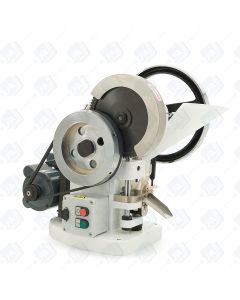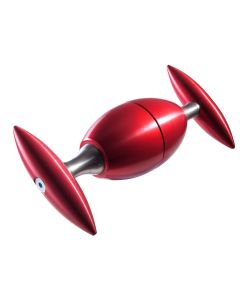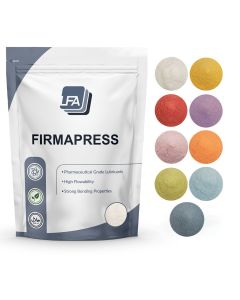Tablet Binding
The term “Binding” describes when the tablet sticks/takes hold of the die or splits during the molding/pressing process.
During the process, a film is built on the molding or die area, restraining the ejection of the tablet. If there is excessive binding, the sides of the tablet might become cracked and can crumble.
If you are having consistent problems with a tablet mix sticking to dies, we recommend trying LFA's all-in-one pill mix Firmapress.
Chtěl/a bych dostávat LFA newsletter
Binding usually occurs when there is little to no lubrication, too much moisture in the granules used, or when worn out or old dies are being used. Binding issues caused by the granulation process are summarised below, alongside potential solutions to these problems.
Binding issues caused by the granulation process
| Problem | Solution |
|---|---|
| Moist granules. Moisture can be seen around lower punch. | Increase drying time of granules |
| Noisey ejection (ocassional cracking tablets) | Increase the quantity of lubricant used |
| Overly Coarse Granules | Reduce granular size by adjusting mesh size on granulation machinery |
| Excesively hard granules. Too hard for the lubricant to be effective | Redue mesh size of granule. If using wet granultion process, reduce drying time. |
| Granular material brassive and damaging tooling | Reduce size and density of granules. If not possible then use higher density tooling |
| Granular material sticks to die | If too warm reduce tempreture. Increase clearance if it is extruding |
Binding issues caused by the machinery or tooling
| Problem | Solution |
|---|---|
| Bad quality tooling | Polish to improve finish or purchase new tooling |
| Rough die surfaces due to abrasion | Replace tooling with higher quality tooling |
| Undersized dies. Too little clearace | Machine down dies to increae clearance |
| Too much pressure | Reduce pressure or modify granulation |





